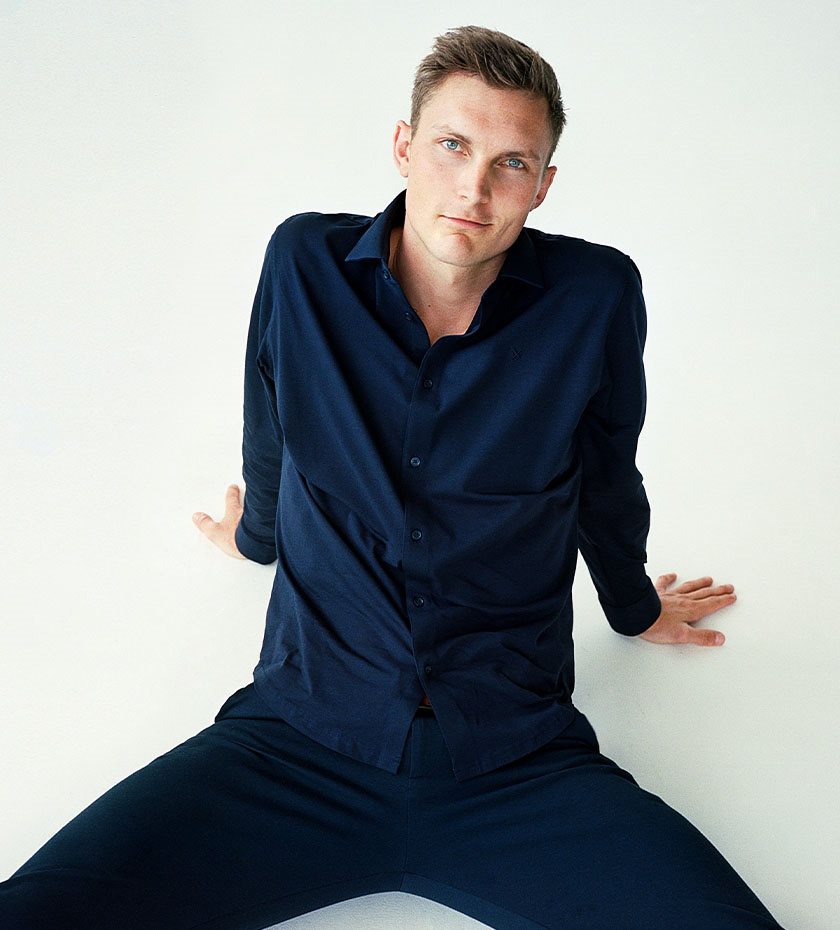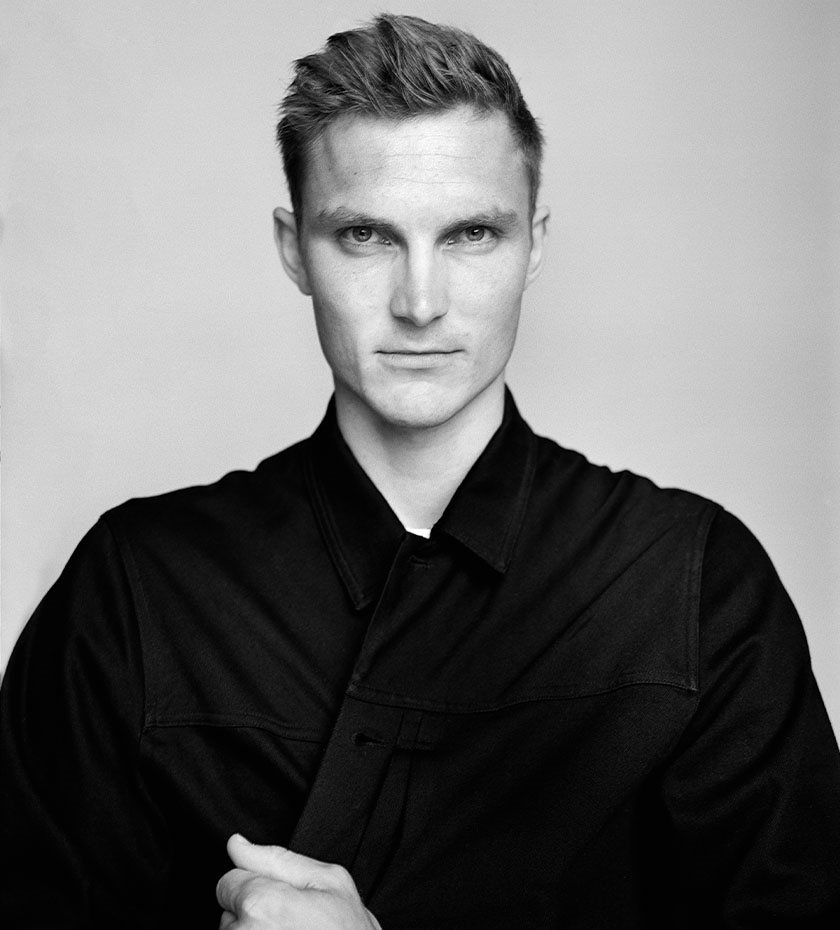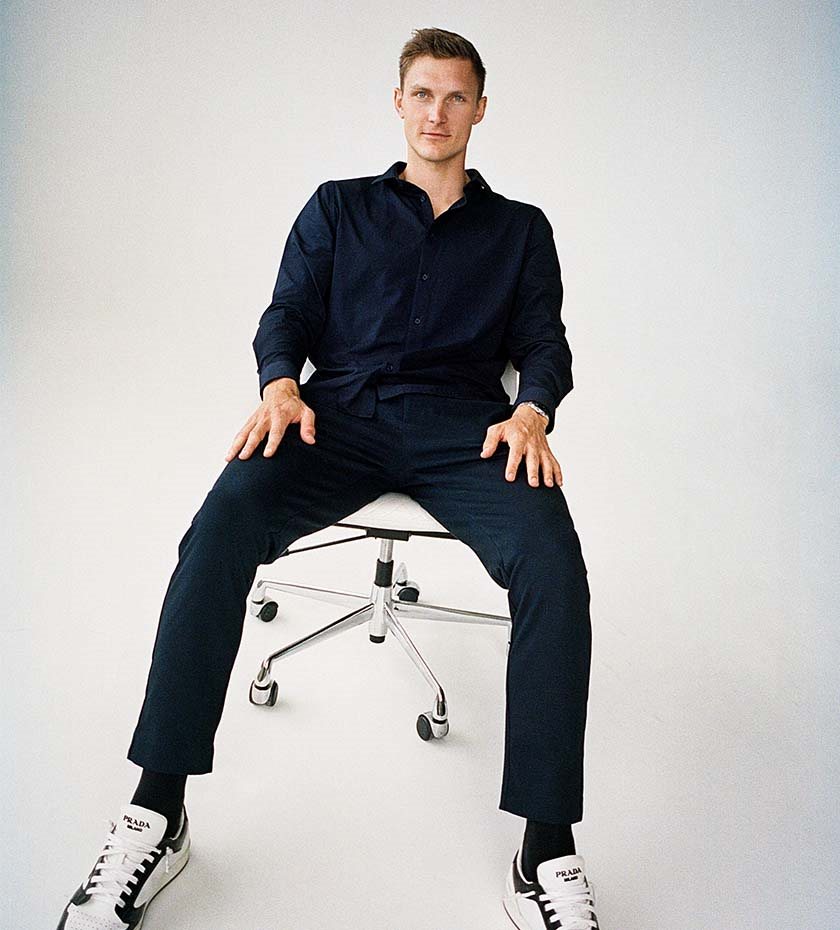The World's Best Viktor

On August 5, 2024, there is no doubt it will stand out as a very special day in 30-year-old Viktor Axelsen's life. He had been in doubt all spring. Doubtful about whether he could recover from various injuries in time. And not least, rebuild his form so he could realistically compete for medals when the 33rd Olympic Games kicked off in the French capital.
The first test took place on July 27 against Nepalese Prince Dahal. He passed it with flying colors. The result was 21-8, 21-6. As the tournament progressed, the competition became more qualified. Just as Viktor Axelsen achieved overwhelming victories over players from Israel, Ireland, Singapore, and India, he faced the reigning world champion in the form of Thai Vitidsarn in the Olympic final.
Badminton is not just a matter of muscles and technique. It is also about having full focus. About pursuing your strategy. And from the start of the match, Viktor Axelsen seemed to be in a closed space where only a victory mattered. But the first points went the Thai's way. Viktor Axelsen lifted a shuttlecock out beyond the baseline. 0-1. The next point went to Axelsen. And so they followed each other to a score of 5-5. Then the Dane pulled ahead.
The set was secured relatively quickly. 21-11. With plenty of demonstrations of Viktor Axelsen's play. Spectacular smashes, elegant net play, and winner after winner. In the second set, the exhibition continued. At one point, he led 16-3 before his game started to lose some sharpness. But the Olympic gold was secured with a fantastic smash for 21-11. Only then did he allow himself to open the door to the room he had been in for the past hour.
The respectful handshakes with the opponent and the judges. Then hugs for the coaches. And then a victory lap with the Danish flag draped over his shoulders. In a brief interview with TV2, he struggled to find words for the triumph. As he said: “I am in shock!”

The Road to Success
A shuttlecock weighs a maximum of 5.5 grams. A modern badminton racket made of graphite weighs around 84 grams. Nevertheless, the absolute elite can fire off a smash at over 300 kilometers per hour! In fact, the record for the hardest smash is a staggering 426 kilometers per hour. Although the shuttlecock's flight is dampened by air pressure, wind resistance, and temperature, the opponent must react within a split second. And ideally, the return should be so skillful that it avoids a new smash against them. Furthermore, the return shot should be challenging enough to allow the player to replace defensive shots with their own attacking shots.
Badminton is a sport that at the elite level requires complete concentration and fitness that is second to none. There is speed on the court, especially when one of Denmark's greatest athletes of all time stands on the court, focusing intensely on details, with a super athletic body (despite being 1 meter and 94 centimeters tall!) and an unparalleled will to win, claiming Olympic, World, and European Championship gold against (almost) equally athletic opponents from China, India, or Indonesia.
In sporting terms, there is absolutely no doubt about his success. He has won almost everything worth winning. From the first Youth European Championship in 2009 to the first World Championship for players under 19 in 2010, the latter as the first non-European in history. And he was only 16 years old. It was also the year he was promoted to his club's best senior team, a testament to his exceptional talent. He was certainly too good for his peers at Odense Badminton Club.
The ambitions of the Odense teenager were equally impressive. In a broadcast from TV2 Fyn in 2010, Viktor Axelsen is asked about his goals. Unsurprisingly, he wants to be the best in the world, participate in the Olympics, and so on…
“How realistic is that?” the journalist asks. “Mhm, I don’t know yet, but it looks okay so far. So I’ll just keep pushing,” is the response. And that is exactly what he has done. Just four years later, he won bronze at the World Championships in Copenhagen. Two years later, he won gold at the European Championships in 2016. The sporting pinnacle came in 2020 when, at just 26 years old, he won both the Olympics and the prestigious All England tournament.

The Year’s Celebration Scene
The recognition for Axelsen’s efforts has certainly not been absent. In 2017, he was named Sports Personality of the Year by DR. Not least, he received the B.T. Gold Award for the Best Celebration Scene of the Year. Quite understandably, when you rewatch the TV footage of a nearly speechless Viktor Axelsen, with his mouth agape and wide-eyed, almost unable to grasp that he had defeated the legendary Lin Dan from China in two sets, 22-20, 21-16. This was Axelsen’s first World Championship gold as a senior player.
His career is, to say the least, impressive. Especially considering that he competes against badminton players from major nations like China, India, and Indonesia. In China alone, it is estimated that there are over 100 million active players. This is in stark contrast to the mere 93,000 to 94,000 who play badminton here at home. The talent pool in the East is simply phenomenal. Although we in Denmark have proud traditions—think of Svend Pri, Lene Køppen, or Morten Frost—it is necessary for an elite player like Viktor Axelsen to be more than ordinarily focused to maintain his position as one of the best badminton players in the world.
A focus he has possessed since his childhood years at Odense Badminton Club, where his father, Henrik, introduced the 6-year-old Viktor to the sport of badminton. In his book *Winning Will* (2022), he describes his first experiences with a racket and shuttlecock: “When I was on a badminton court, I quickly felt that I disappeared into a zone where I forgot time and place and was completely present in the moment. I had eyes only for the shuttlecock and focused on my shots and my movements. Everything else vanished. I was truly captivated by the sport, allowing myself to be consumed by it. I threw myself around the court, practiced all the shots, and I also loved the tactical elements of badminton. And it quickly became clear that I had talent.”
Talent is undeniable. But it has also required hard work. Fortunately, training has been something of a priority. Moreover, his attitude toward a finely-tuned career has been exceptional from the start. Even though today he can smile a bit at some of the naive choices he made as a youth player. “Of course, I pulled myself together when I was selected to play in the Youth World Championships in Mexico. It was a great opportunity to be part of the older Danish age groups. But I handled it in a way that illustrated my lack of professionalism. Two weeks before the trip, I stopped spending my pocket money at 'Tutten,' as I called Niels Jørgens' cafeteria in the hall. I didn’t touch candy, and I also said no to desserts. In my mind, a 14-day sugar stop was to go all in for the Youth World Championships. Today, I can’t help but smile at my naive, carefree, and uncomplicated approach.”
Before and After
Whether it was the sugar stop or simply an unstoppable talent—or perhaps a combination of both—remains to be seen. But the incredible happened. A few weeks later, Viktor Axelsen returned to Kastrup Airport with the trophy on top of the baggage cart. He simply won all his matches and could now call himself the world champion for youth players. That very moment when he stepped out of customs and was met by a crowd cheering congratulations and hurra marked a turning point for the teenager from Odense.
Suddenly, the coaches' words began to settle in a different—and perhaps slightly darker—way than before. There were remarks like: “You are too tall to become really good.” Until then, the criticism had been about his footwork not being good enough or that he made too many cross-net drops. “One thing was to receive criticism if it was a factor I could change. This hit me really hard because I couldn’t control or influence my height. It was completely different from if they had said that I was too weak, that I hit too softly. I could train my way out of that. I would have sacrificed anything for that. Deep down, I feared they were right, that my height would hold me back.”

In 2011, Viktor Axelsen moved out on his own to an apartment in Frederiksberg. This was to become a regular part of the national training team in Brøndby. Now he had to work hard to achieve his goal: to become the best in the world. He meticulously organized his everyday life. Everything was put into small boxes so he could keep track of everything from diet to sleep, training, and all the other small and large elements that can influence whether it ends in success or failure.
But he still worried enormously about his height. And when he at one point received a new passport stating clearly that at 17 years old he measured 190 centimeters, it resonated throughout his body. When he was with others, he would almost unconsciously duck his neck to appear slightly shorter. He found his solutions. And achieved his success. But this happened not least because he possesses a special ability to see opportunities and find the right path, whether it involves hard work or small adjustments.
Off the court, his ability to focus on details has also helped him progress. Like when he learned to speak fluent Chinese. This language talent has also benefited him on the court. For instance, during a match against Wong Wing Ki from Hong Kong, he could hear his coach reminding him to remember the strategy and to keep the pace high. “I don’t think he knew at that time that I spoke a bit of Chinese,” Axelsen has said in an interview with TV2. His motivation to learn Chinese simply stemmed from his desire for challenges off the court—and perhaps also the fact that large parts of the badminton world have connections to China.
The Media Storm
But the very ability to focus on details may also be the secret behind his success, which for several years made him nearly invincible on the badminton courts. Therefore, he was perhaps a bit surprised by the reactions when he announced to the world in 2021 that he was moving to Dubai with his family.
In the wake of his Olympic success in Tokyo, he announced that he was stepping away from daily training with the national team in Brøndby. Instead, he wanted to create his own academy in the desert state. The media interpreted this as a betrayal of the Danish Olympic idol. In fact, some commentators believed that his plans posed a direct threat to the Danish model, which is based on talent development in the more than 700 Danish badminton clubs—and of course, national team training, where experience has been passed down through generations to young players. Additionally, Dubai does not rank high in the international community in all respects, particularly due to the country's somewhat questionable stance on human rights.
For Viktor Axelsen, the intensity of the reactions came as a bit of a surprise. Dubai was chosen because there is a fairly large Danish community there. But especially because it brought him closer to the biggest badminton tournaments, many of which are in Asia. In an interview with Euroman last year, he spoke about the reactions. “I knew there would be reactions. But I was surprised by how insane it was. Every single debate program in Denmark covered my situation. And we were in Dubai while it was going on. Of course, there were some days when I was stressed about it. I just sat there thinking: ‘You have no idea what you’re talking about.’ But again: We are super happy with our choice. There are a ton of Danes down there with whom we have become close. We’re having a great time, and the kids are doing fantastic. We have a cool pool area, there’s entertainment in the evenings, and playgrounds. For the kids, it’s like being on vacation... at home.”
Although Viktor Axelsen ranked second in the world ahead of the Olympic Games in Paris, the last couple of years have brought both ups and downs. Not that the latter has anything to do with the new base in Dubai. He and his family are comfortable there. But everyone has bad days, as he puts it. At least it was a bit of a shock when he was eliminated in the first round at the World Championship in Spain in 2021. The shock was not lessened when he also lost his first-round match at All England last year, as the defending champion.
Huge Brand
Despite somewhat uneven results on the court, Viktor Axelsen has managed to create a huge brand around his persona. A brand that is managed daily by his father at home in Odense, and something that has developed into a million-dollar business. However, this isn't because the prize money in badminton is particularly impressive. According to various media reports, Viktor Axelsen earned 'only' 2.8 million kroner in 2022. This is insignificant compared to tennis, where Holger Rune earned 18.5 million in prize money the same year.
According to Kenneth Cortsen, a researcher in sports economics and branding at UCN, there is a straightforward explanation for the significant difference in prize money. As he explained in an interview with TV2 Fyn last year: “There is a lot more money in tennis than in badminton. Moreover, badminton is not a major sport in North America and Europe, which can detract from his (Viktor Axelsen's) branding value compared to other sports stars,” he says, continuing: “Viktor Axelsen is doing fantastically and has an interesting personality, and it is important that he maintains his sports positioning. He is intelligent and ambitious, is good in front of the camera, and that suits many sponsors, especially in Denmark, but it’s a relatively small market, so he also needs to push in Asia.”
This is partly why Viktor Axelsen has learned to speak fluent Chinese, to enhance his branding value and thus his earnings off the court in the large Chinese market. Therefore, it is undoubtedly through various sponsorships that Viktor Axelsen makes the most money. Much has changed since his first contract, which consisted of two rackets, some sportswear, and a sports bag. Today, it's the big international brands like Yonex that help secure his paycheck. But more is needed. As his father, Henrik Axelsen, says: “He can’t live off badminton for the rest of his life. But he can live off having a good name. If you’re someone people like, the brand continues. Many praise Viktor for being himself, for being a nice guy – and not just badminton player Viktor. That makes me proud.”
With Olympic gold and world championships, there is no doubt: he is simply the world's best Viktor.